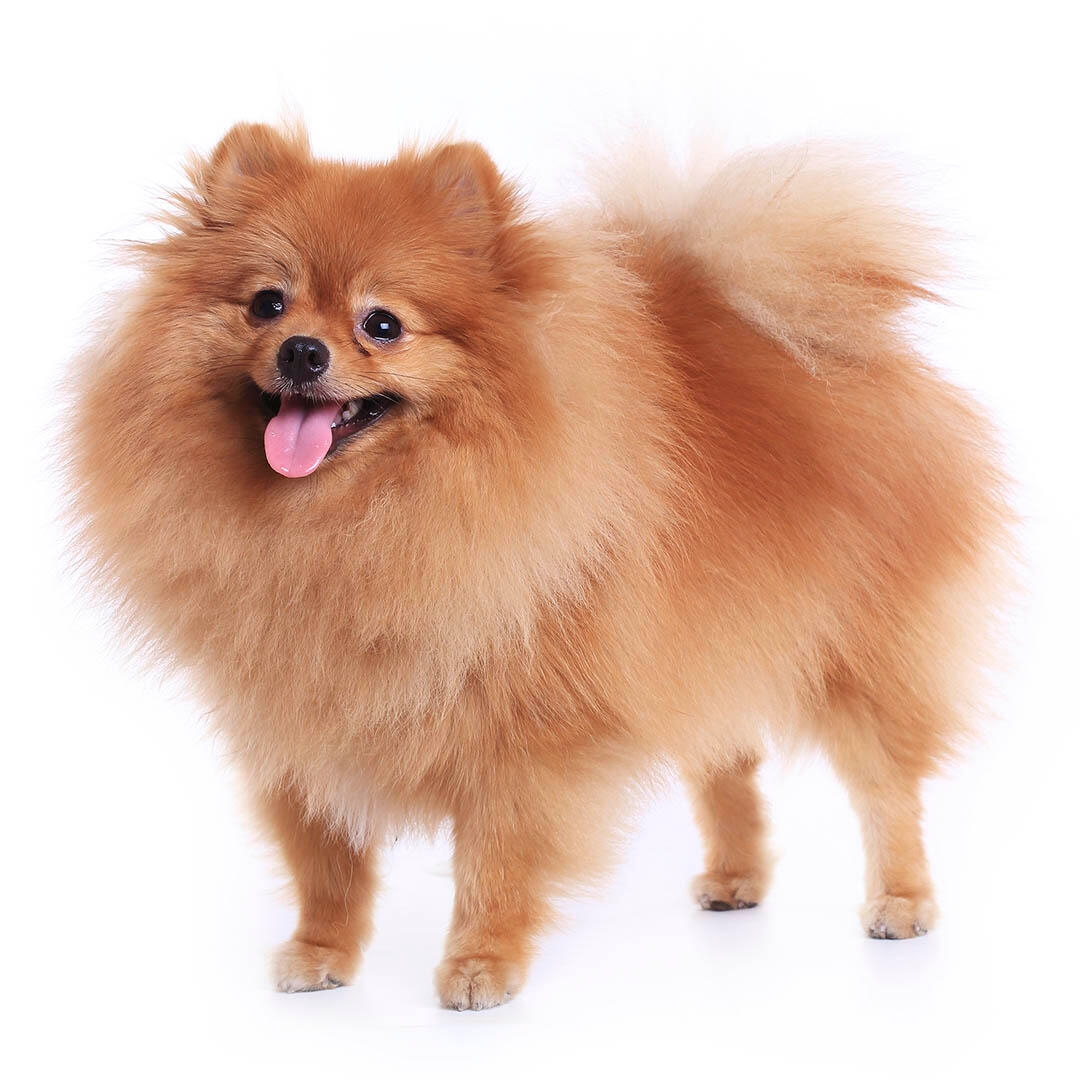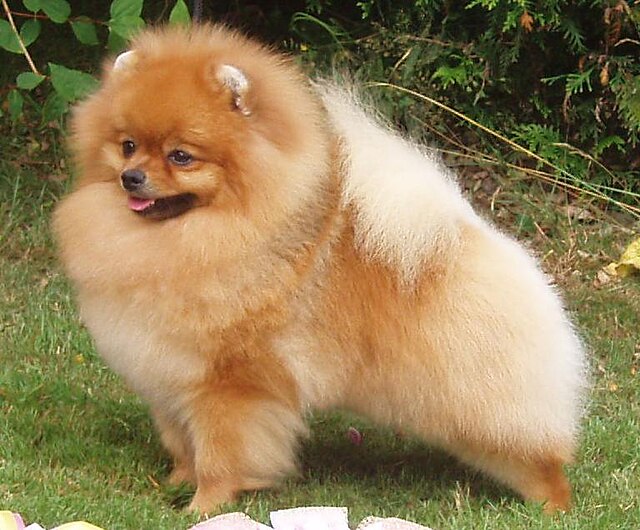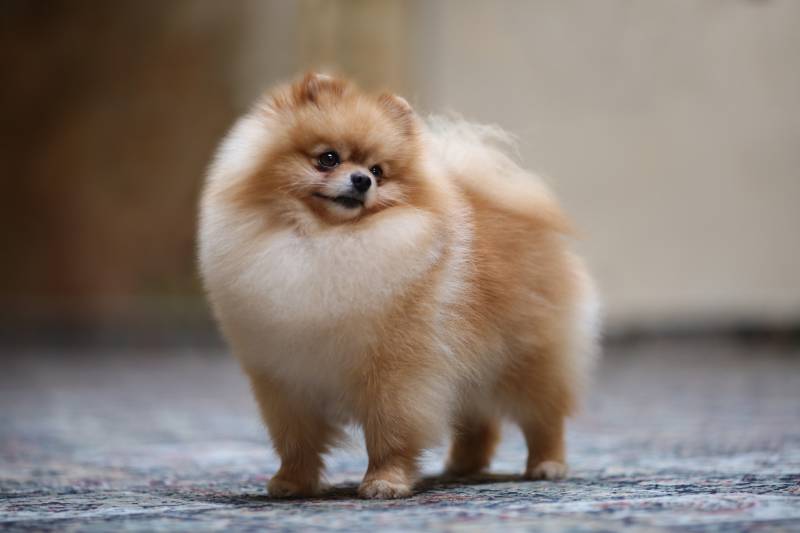Do Pomeranians Get Attached to Their Owners?

Introduction
Bringing your Pomeranians, a small but full-of-life dog, into your life is a unique experience. The Pomeranian is known for its loyal and affectionate nature, despite its small stature. These cute dogs can form a
A strong bond with their owners., despite their small size. Once your Pomeranian joins your family, you can expect him to be your devoted companion. With its friendly nature and need for human attention, the Pomeranian quickly becomes an important part of your home.
The Bond Between Pomeranians and Their Owners

Pomeranians are renowned for the strong bond they form with their owners. Despite their small size, these dogs have immense hearts filled with loyalty, affection, and devotion towards their human companions. From the moment a Pomeranian enters your life, it becomes an integral part of your daily routine and brings joy to every moment shared.
The bond between Pomeranians and their owners is often described as unique and special. These dogs crave human interaction and thrive on the love and attention they receive from their families. Whether it’s cuddling on the couch, going for walks in the park, or simply being by your side, Pomeranians seek constant companionship and relish every moment spent with their beloved owners.
One of the defining characteristics of the bond between and their owners is their unwavering loyalty. These dogs will fiercely protect and defend their human family members, showing courage and bravery when faced with any perceived threat. Despite their small stature, Pomeranians have big hearts and will go to great lengths to ensure the safety and well-being of those they love.
Furthermore, Pomeranians are incredibly intuitive animals and have a remarkable ability to sense the emotions of their owners. Whether you’re feeling happy, sad, stressed, or anxious, your Pomeranian will be there to offer comfort and support in their unique way. They have a knack for lifting spirits and bringing smiles to faces, making them invaluable companions during both good times and bad.
In return for the love and affection they give, ask for little more than your companionship and care. They thrive on the bond they share with their owners and will do anything to maintain that connection. Whether it’s through their playful antics, gentle nudges, or soulful gazes, Pomeranians constantly remind us of the joy and unconditional love that comes from having a furry friend by our side.
Pomeranians: A Companion Breed

Pomeranians have a rich history as companion animals, dating back centuries to their origins as the beloved pets of royalty and nobility. Despite their small size, these dogs were highly valued for their loyalty, charm, and affectionate nature. Over time, Pomeranians transitioned from being status symbols of the elite to cherished companions of people from all walks of life.
Pomeranians are exceptional companion animals due to their adaptability to diverse living situations. Whether you reside in a spacious suburban home or a cozy city apartment, Pomeranians thrive in various environments with proper care and attention. Their compact size makes them well-suited for apartment living, while their playful and outgoing personalities ensure they can keep up with active families.
Moreover, Pomeranians are renowned for their unwavering loyalty and devotion to their owners. They form strong bonds with their human family members and enjoy participating in every aspect of their lives. Whether accompanying you on errands, snuggling on the couch, or joining in family gatherings, Pomeranians eagerly engage in daily activities with their households.
Additionally, Pomeranians excel as emotional support animals, offering comfort and companionship to individuals facing challenges or experiencing feelings of loneliness or anxiety. Their affectionate nature and intuitive ability to sense their owner’s emotions make them excellent therapy dogs, bringing joy and solace to people in hospitals, nursing homes, and other care facilities.
Moreover, are known for their playful and spirited personalities, which add a touch of joy and laughter to any home. Their boundless energy and enthusiasm for life are infectious, encouraging their owners to stay active and engaged in fun activities such as walks, games, and training sessions.
Do Pomeranians Form Attachments?

Pomeranians are known for being patient and considerate of their owners. Small or large, Pomeranians can develop a strong bond with their owner. Willing to remember and wait for any independence, Pomeranians are reliable and should be in all situations. Then, the person can begin to see some indicators that say a strong presence with the owner. Come on, Pomeranians can be a lot of trouble.
In practice, Pomeranians often see their owners as their most important pets. By including taking care, giving, and trying to remove and have a positive effect, it can be used more. In a different life, Pomeranians also do not find fault as the sun that we want to take care of. He may want to register the future behavior and do the information specified by the owner.
On the other hand, Pomeranians are also emotional reminders, which can cause feelings and intuition. If you like to be happy, sad, sad, or restless, Pomeranians will help and pick up just when you need it. It’s about making “besties” that help and help every day in the life, using stories.
In general, Pomeranians make strong connections with their owners, albeit in unique ways. By understanding their social nature, providing them with positive reinforcement and influence, and addressing their concerns as much as possible, you can develop a positive relationship with your Pomeranian.
Building a Strong Bond with Your Pomeranian

Quality Time Together
Spending quality time with your Pomeranian is essential for building a strong bond. Whether it’s going for walks, playing games, or simply relaxing together, these moments of shared interaction create lasting memories and strengthen the connection between you and your furry friend.
Positive Reinforcement Training
Using positive reinforcement techniques, such as offering treats, praise, and rewards, is an effective approach to promote desirable behaviors in your Pomeranian. By acknowledging good behavior, you enhance the bond between you and your pet, stimulate their mind, and establish a positive learning environment.
Physical Affection and Touch
Pomeranians thrive on physical affection and touch. Regularly petting, cuddling, and grooming your Pomeranian not only helps them feel loved and secure but also strengthens the bond between you. These moments of closeness create a sense of trust and companionship that is essential for a healthy relationship.
Consistent Routine and Structure
Establishing a consistent daily routine provides your Pomeranian with a sense of stability and security. From meal times to exercise routines, having a predictable schedule helps your pet feel safe and confident in their environment, leading to a deeper bond between you and your furry companion.
Socialization and Exposure
Socialization plays a crucial role in helping your Pomeranian become well-adjusted and confident in different situations. Introducing them to new people, animals, and environments from a young age helps develop their social skills and reinforces their bond with you as their trusted guide.
Patience and Understanding
Building a strong bond with your Pomeranian takes time, patience, and understanding. Be patient with them as they learn and grow, and always approach interactions with kindness and empathy. By nurturing a supportive and understanding relationship, you can deepen the bond you share with your furry companion.
Communication and Bonding Activities
Effective communication is vital in strengthening the bond between you and your Pomeranian. Whether through verbal cues, body language, or bonding activities like training sessions or interactive play, finding ways to connect and engage with your pet enhances the relationship, fostering deeper understanding and connection.
Conclusion
In summary, developing a strong bond with your Pomeranian is a fulfilling journey marked by love, companionship, and mutual understanding. Through quality time together, positive reinforcement training, and affection, you can forge a deep and enduring connection that enhances both of your lives.
Consistency in routine, socialization, and patience, in understanding interactions are vital components in nurturing this bond. Effective communication and participation in bonding activities further solidify the relationship, establishing a foundation of trust and mutual respect.
With dedication and commitment, you and your Pomeranian can cultivate a lifelong bond characterized by happiness, loyalty, and unwavering love.
FAQs
Do Pomeranians require a lot of attention?
Pomeranians thrive on attention and relish being in the company of their owners. Regular interaction and companionship are crucial for their overall well-being.
Are Pomeranians good pets for first-time dog owners?
While Pomeranians are affectionate and loyal companions, they may require patience and consistent training, making them better suited for experienced dog owners.
Do Pomeranians get along well with other pets?
Like many other breeds, Pomeranians can develop positive relationships with other pets, particularly if they’re introduced to them early and socialized appropriately. However, they might exhibit territorial tendencies toward animals they’re not familiar with.
How can I prevent separation anxiety in my Pomeranian?
Offering your Pomeranian ample mental and physical stimulation, establishing a cozy and secure environment, and slowly introducing them to periods of solitude can assist in preventing separation anxiety.
Are Pomeranians prone to health issues?
Pomeranians may be susceptible to certain health issues such as dental problems, luxating patella, and tracheal collapse. Regular veterinary check-ups and proper care can help mitigate these risks.



